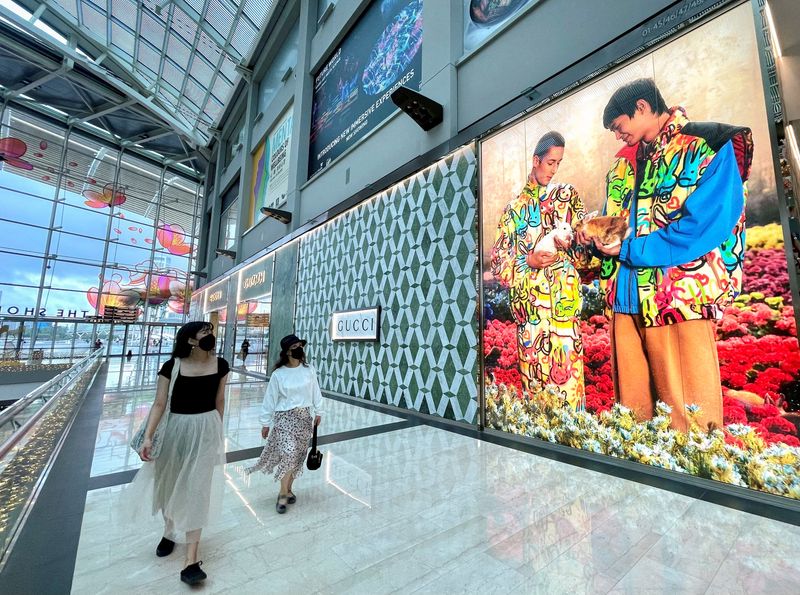(Corrects grammar in paragraph two, to 'had' from 'has')
By Xinghui Kok
SINGAPORE (Reuters) - Singapore households are bracing for a sales tax hike that takes effect in the new year as the government shores up coffers ahead of an expected surge in social spending in the rapidly ageing city-state in the years ahead.
The goods and services tax, which is levied on everything from groceries to diamond rings, will be increased by one percentage point to 9% on Monday, the second phase of a two-stage rate hike. This year the sales tax was raised to 8% from the previous 7%, which had been unchanged for 15 years.
The hikes comes on top of already rising living costs, prompting opposition lawmakers to call for a delay in the rise. Core inflation in Singapore has moderated to 3.2% in November from a peak of 5.5% in January and February, but remains stubborn with the central bank expecting it to average 2.5–3.5% in 2024.
The government has said the tax increment was necessary to bolster state finances as it prepares for a surge in Singapore's ageing population and rising healthcare costs. It is estimated that a quarter of the population will be 65 and older by 2030.
In August, Deputy Prime Minister Lawrence Wong wrote in a parliamentary response that "deferring the GST increase will only store up more problems for the future, leaving us with less resources to take care of our growing fiscal needs".
The government has handed out fiscal relief to households in an "assurance package" worth more than S$10 billion ($7.55 billion), including S$200 to S$800 paid out to all adult Singaporeans this month.
Some retailers have pledged not to pass on the tax hikes for now. Home furnishing brand IKEA said it will absorb the 1% hike but did not say when it would end the initiative, while supermarket chain FairPrice Group will absorb the hike on 500 essential items like rice and vegetables.

($1 = 1.3237 Singapore dollars)
(This story has been refiled to correct 'has' to 'had' in paragraph 2)